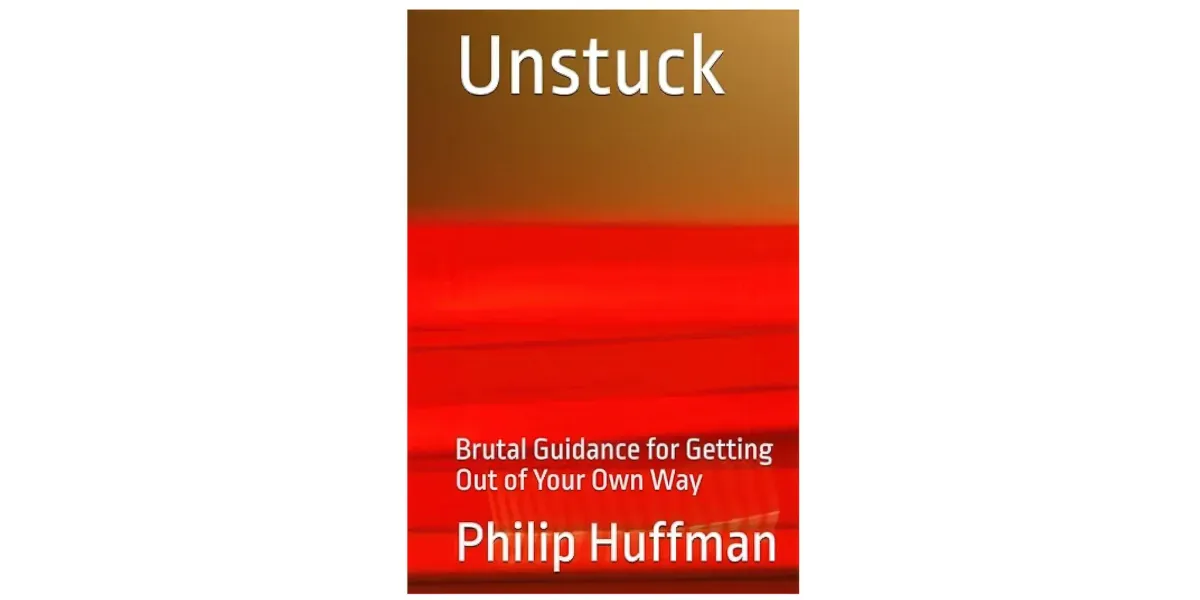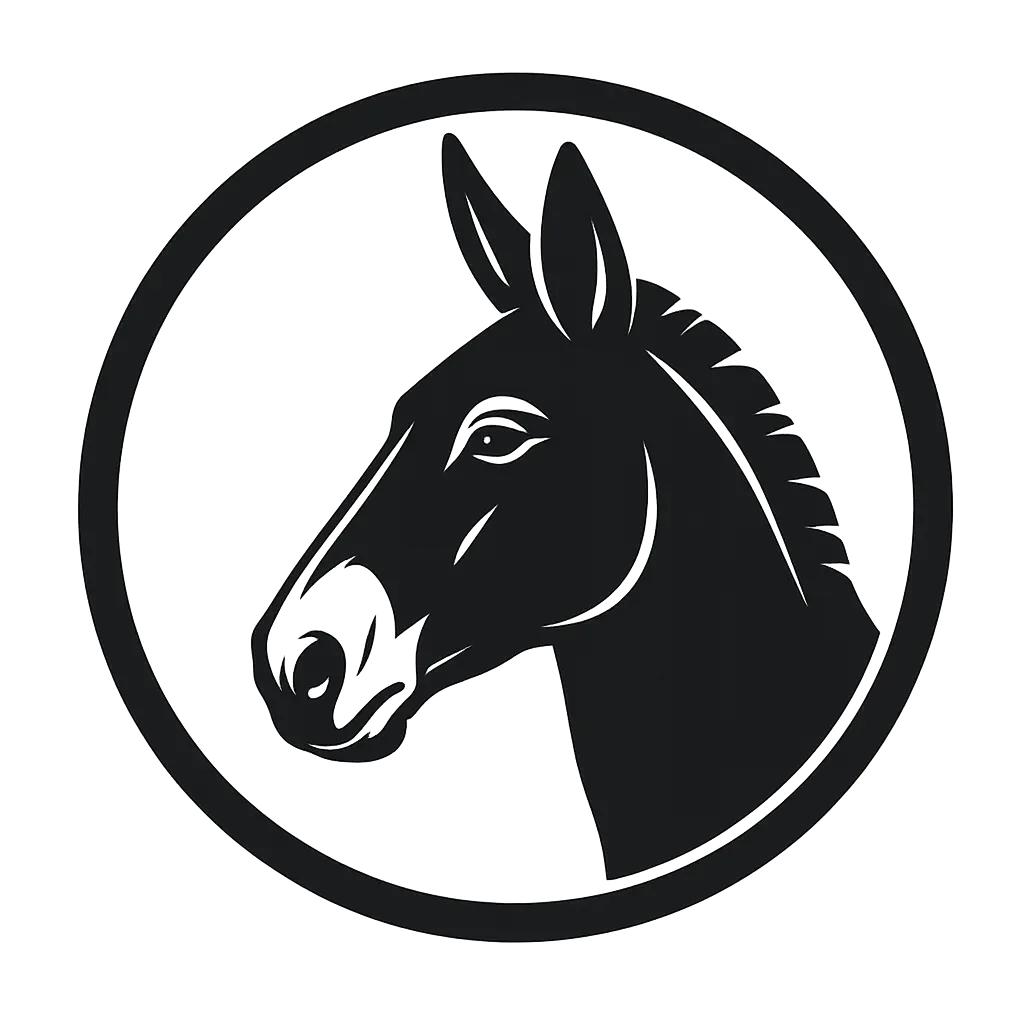Mock Interview Transcript: Philip Huffman on His New Book "Unstuck"

Brian Bethany (BB): Phil, thanks for joining me today. Your book, Unstuck, tackles the feeling of being trapped in life’s cycles. Let’s start with the big question—what inspired you to write this book?
Phil Huffman (PH): Thanks for having me, Brian. The idea for Unstuck came from my own struggles with stagnation. I wasted decades feeling like I was running in place—wanting change but never quite making it stick. At times I wanted to quit. Eventually, I learned that the key wasn’t finding the “perfect” next step but learning how to move forward despite uncertainty. I wrote Unstuck to share those insights with others who feel trapped in their own lives.
BB: Many books of this genre focus on motivation, but Unstuck goes a different way. Why?
PH: A lot of self-help books focus on motivation, but motivation is fleeting. It comes and goes. Unstuck is about something stronger—momentum, powered by self-discipline. It’s about taking small, consistent actions instead of waiting for motivation to strike. The book also challenges some common myths about change, like the idea that we need to feel ready before we take action. Spoiler: we don’t.
BB: That’s powerful. You talk a lot about “radical responsibility” in the book. What does that mean to you?
PH: It means owning your life—completely. No blaming, no excuses, no waiting for someone else to fix things. That doesn’t mean ignoring hardships or pretending life is fair. It means recognizing that, even when things aren’t your fault, how you respond is always within your control. That shift in mindset is game-changing.
BB: That’s a tough but necessary truth. In Unstuck, you share stories of people who’ve transformed their lives. Is there one that stands out?
PH: There’s a guy who was stuck in a cycle of self-sabotage—bad habits, procrastination, feeling like a failure. He started with one small change: waking up 30 minutes earlier to work on himself. That simple habit created momentum. Within a year, he had transformed his health, his work, and his mindset. His story proves that big change starts with small, consistent action.
BB: What was the hardest part of writing this book?
PH: Honestly, narrowing it down. I wanted to keep Unstuck practical—no fluff, no vague advice. That meant cutting a lot of content that was interesting but not immediately useful. Writing it also forced me to take my own medicine—I couldn’t just write about getting unstuck; I had to live it every day.
BB: That’s the mark of an authentic book. You also write about resistance—how people resist their own growth. Why do we do that?
PH: Growth is uncomfortable. Even when we’re miserable, there’s a strange comfort in the familiar. Change requires stepping into the unknown, and our brains hate that. We tell ourselves stories—“I’m too old,” “I’ve tried before,” “It’s just who I am”—to stay where we are. But those are just fear in disguise.
BB: You introduce the idea of “failing forward.” Can you explain that?
PH: We’re taught that failure is bad, something to be avoided. But failure is how we learn. “Failing forward” means using failure as a stepping stone instead of a stop sign. If you bomb a job interview, you just learned something valuable for the next one. If your first attempt at a habit doesn’t stick, you refine and adjust. The only real failure is giving up.
BB: Your book also touches on the idea of learned helplessness. Can you explain what that is?
PH: Absolutely. Learned helplessness is when people stop trying because they’ve been conditioned to believe that nothing they do will make a difference. It’s a psychological phenomenon where, after repeated failures or hardships, people start thinking, Why bother? It happens in careers, relationships, and personal growth. Someone might say, I’ll never be good at this, or Things never work out for me, and they stop trying. The key to breaking free from it is recognizing that past failures don’t predict future outcomes—especially if we change our approach and take back control. Even small wins can shift that mindset and build confidence again.
BB: That makes a lot of sense. What’s one thing readers should do right after finishing Unstuck?
PH: Take action—immediately. Pick one thing, however small, and do it today. The biggest trap is finishing the book, feeling inspired, and then doing nothing. The whole point of Unstuck is to break that cycle.
BB: If you could go back in time, what advice would you give to your younger self?
PH: Stop waiting. Waiting for clarity, for confidence, for the “right time”—it’s all an illusion. Just start.
BB: You touch on discipline in the book. How do you define it?
PH: Discipline isn’t about forcing yourself to suffer. It’s about creating habits that make your future self’s life easier. People think discipline is willpower, but it’s really about structure and systems.
BB: What role does mindset play in getting unstuck?
PH: It’s huge. If you believe you’re stuck, you’ll act like it. If you believe you can create change, even in small ways, you’ll start seeing possibilities. Your thoughts shape your reality.
BB: What’s one common mistake people make when trying to change?
PH: They go too big, too fast. They try to overhaul their entire life in a week, get overwhelmed, and quit. Start with small, manageable changes.
BB: You write about the power of identity—how does that relate to change?
PH: If you see yourself as “someone who always quits,” you’ll quit. If you start identifying as “someone who follows through,” your actions will start aligning with that belief. Identity shifts drive lasting change.
BB: What books influenced your own thinking on personal growth?
PH: The Fountainhead by Ayn Rand, Cosmos by Carl Sagan, and Meditations by Marcus Aurelius. Each shaped my thinking in different ways—philosophically, scientifically, and personally. The Fountainhead challenged me to think independently and hold firm to my values despite societal pressure. Cosmos opened my eyes to the vastness of the universe and our place in it, reinforcing the importance of curiosity and reason. Meditations taught me the power of self-discipline, resilience, and accepting what is beyond my control while taking full responsibility for my actions.
BB: What’s next for you? Any upcoming projects?
PH: Right now, I’m focused on getting Unstuck into as many hands as possible. I’m also exploring ways to bring these ideas into a more interactive format—maybe a course or workshop.
BB: Sounds exciting. Where can people find you and Unstuck?
PH: The book is available on Amazon, and you can find me at my site. for more content and updates.
BB: Phil, this has been a fantastic conversation. Thanks for sharing your insights.
PH: Thanks, Brian. It’s been a pleasure.
